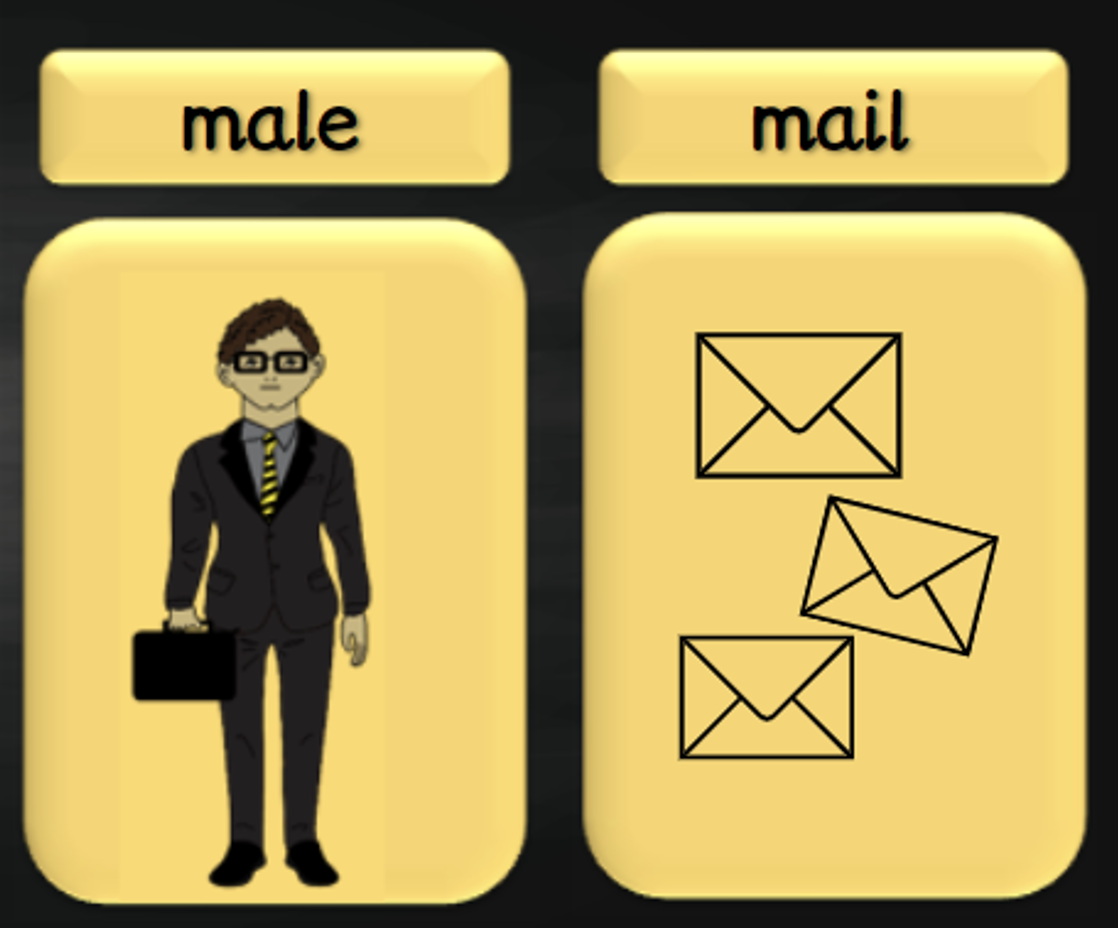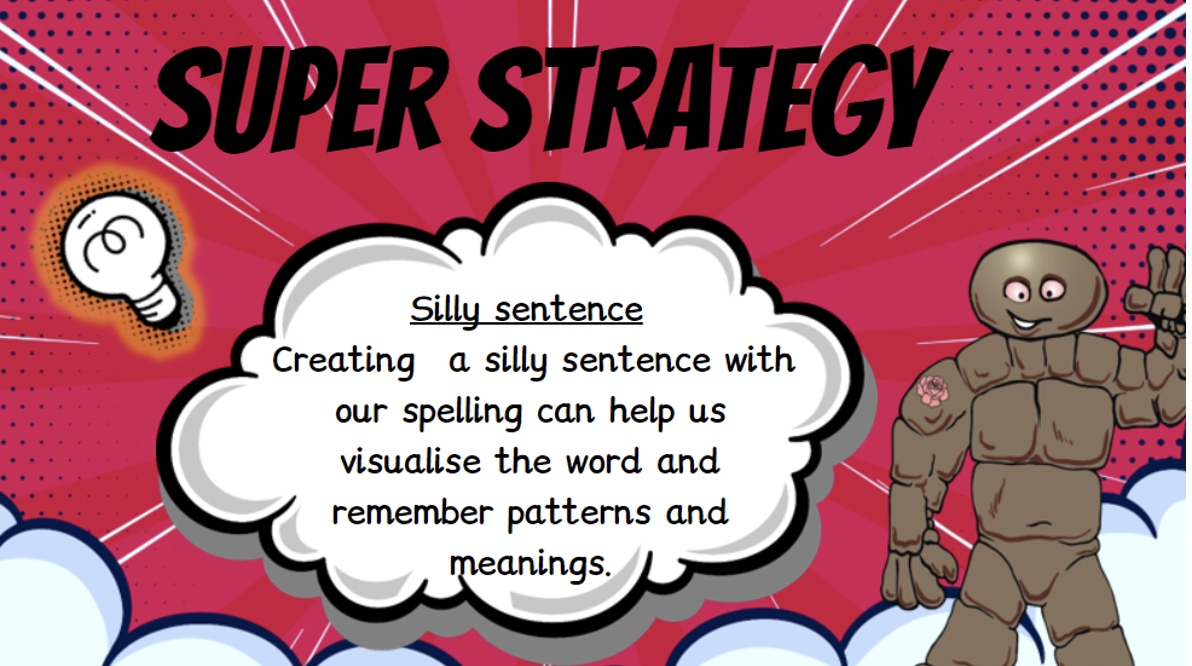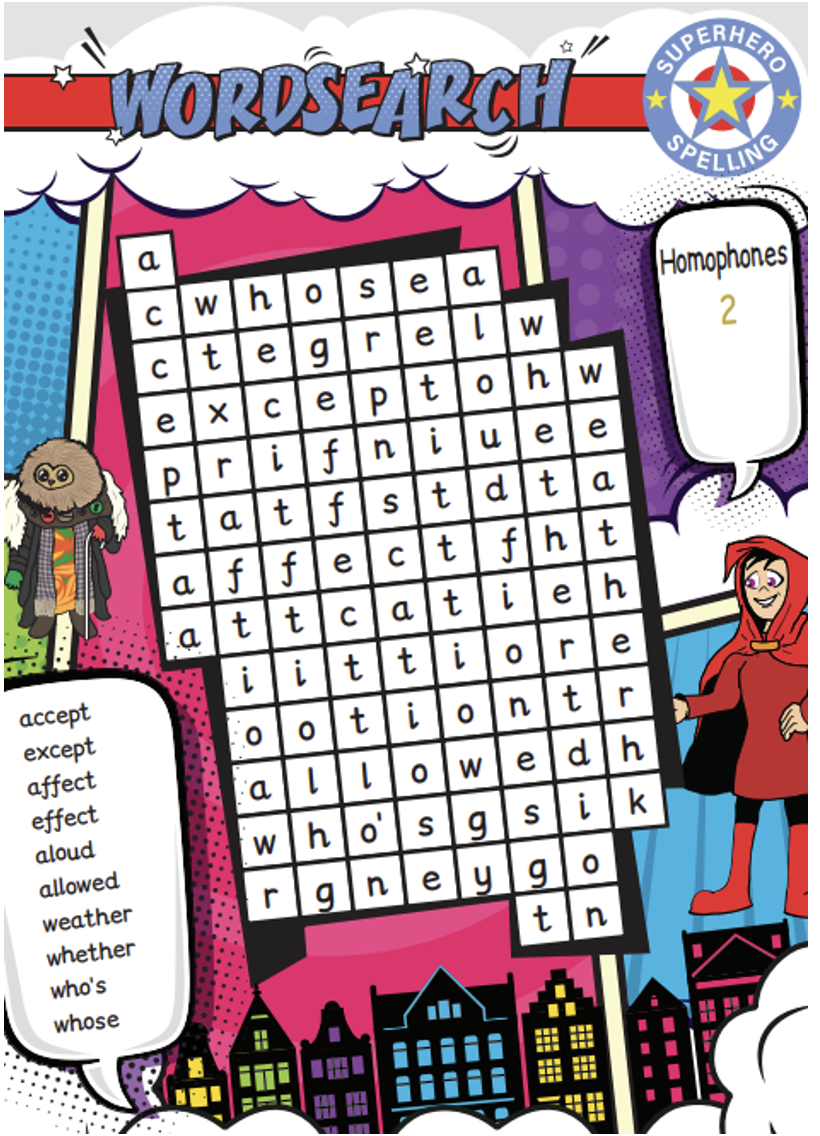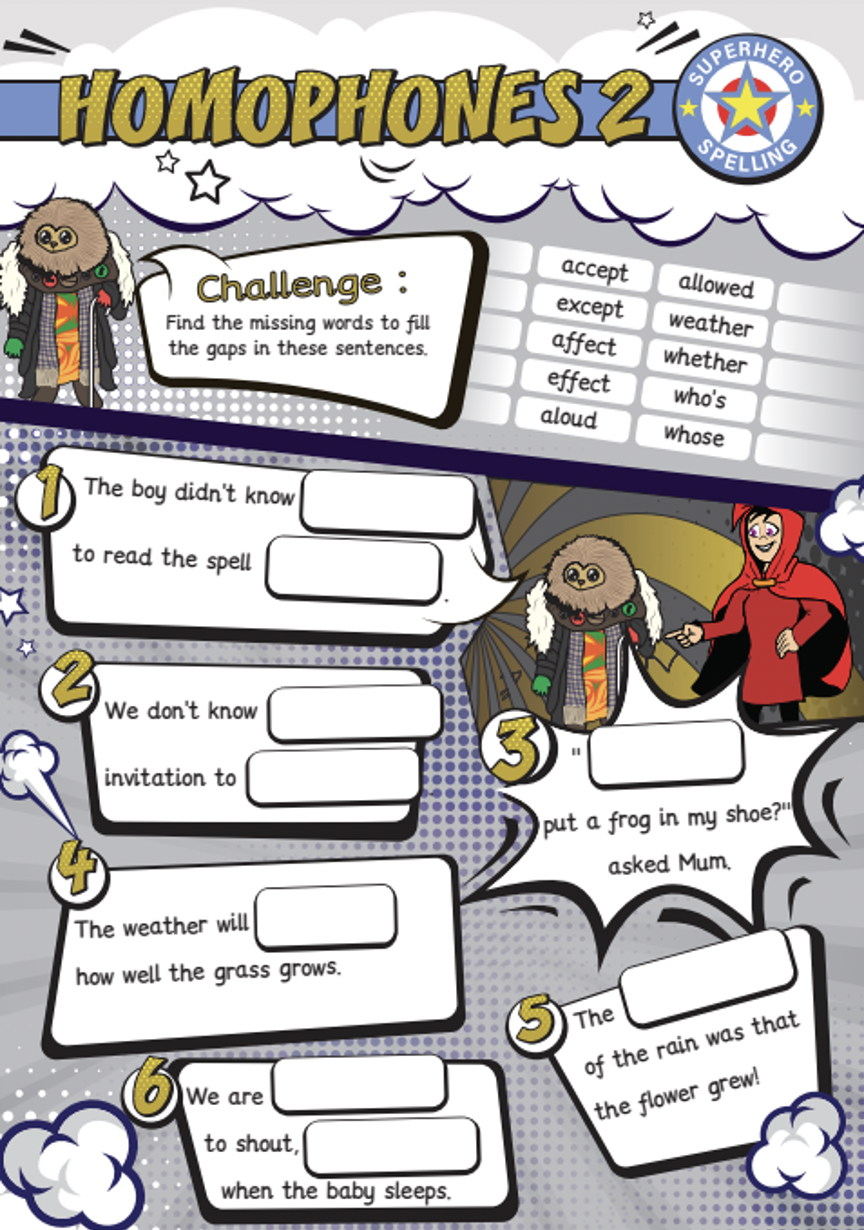

The word homophone comes from ‘homo’ meaning same and ‘phone’ meaning sound. So, homophones are words that sound the same but are spelled different and have different meanings.
Having been a primary school teacher for over 20 years, I have frequently come across pupils that struggle with homophones when it comes to spelling them correctly. I’ve often been asked “How can I remember which spelling is the correct spelling?”
The problem with homophones is that they can trip you up! Homophones are tricky because they sound the same when spoken but have a different meaning and a different spelling. The English language has more than 441 homophones at the last count – 396 pairs, 40 triples and 5 quadruples. It’s no wonder that children find this confusing as it can be difficult to know which meaning is intended in a particular context.
One reason that some children have difficulty is that they may not have a very strong grasp of spelling or grammar. Homophones are often misspelt or misused in children’s writing. Let’s have a look in a bit more detail …
Practice and exposure to a variety of sentences using homophones in different contexts can be helpful, along with engaging activities that involve reading, writing, and speaking. These can enhance their familiarity and understanding of homophones over time.
Homophone art: create visual representations of the homophones as a memory cue.
Homophone silly song or rhyme: Make up a silly sentence, song or rhyme to help you visialise the homophone. That’s one of SHS Super strategies!


Word puzzles and games: Create word searches with pairs of homophones to reinforce spellings.

Homophone matching game: Create cards with homophones (1 word per card) and their definitions or corresponding image. Have the child match the homophones into the correct pairs.
Sentence building: Provide sentences with blanks where the homophones should be inserted. The child needs to choose the correct homophone and spelling to fill the gap. 
Homophone charades: Act out homophones and the child guesses which homophone is being portrayed. E.g Flower- someone will act out pretending to hold a flower and smell it.
Homophone story writing: Ask the child to write a short story or paragraph using a set of homophones. This allows them to practise using the homophones in context and reinforces the correct meanings.
Many of the above activities can be found as part of the Superhero Spelling Programme.
Find out more and watch a demo by clicking HERE
Explore unlocked access to Superhero Spelling with our free forever account
Register
To get access to our FREE samples.